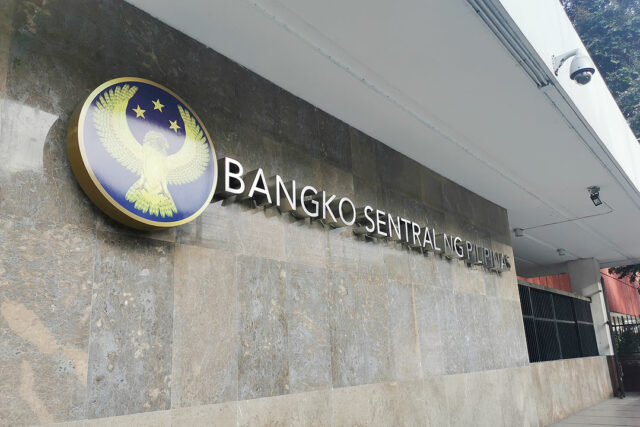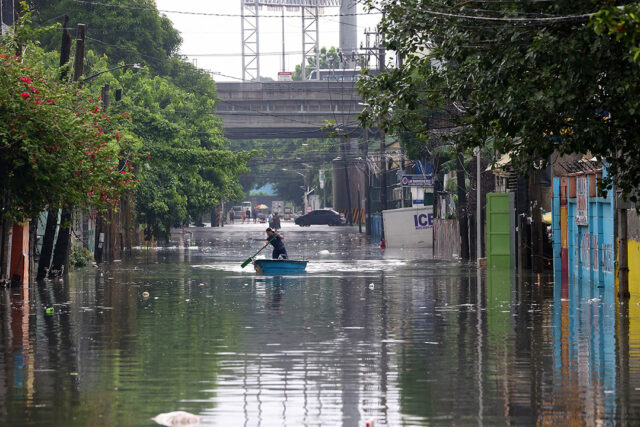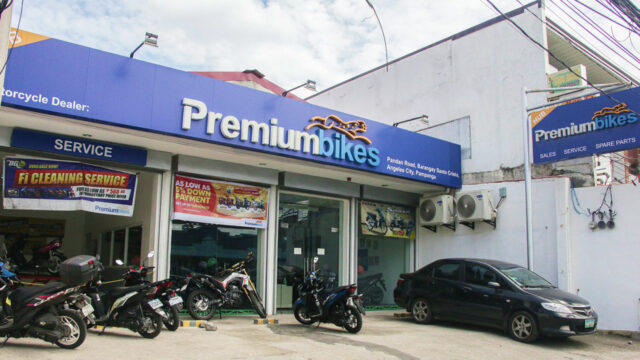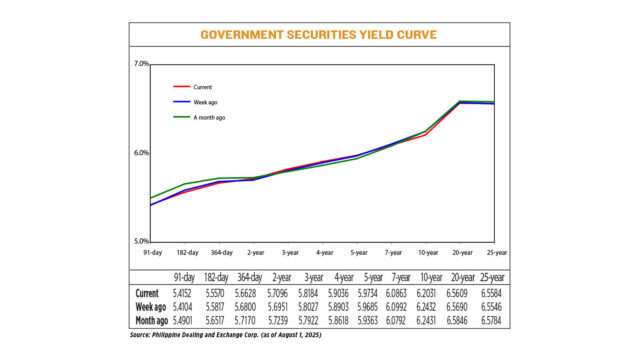Après le deluge.
There is, of course, Biblical flooding. Last week’s floods in Luzon — which managed to still surprise a Philippines so familiar with annual delubyo — seemed less the result of three typhoons embroiled in the southwest monsoon, than with immense narratives of wrongdoing and retribution.
In Judaic culture, the earth-altering floods survived by the patriarch Noah, his family, and paired animals has had a humongous place in the imagination through at least 5,000 years. Originally for an ethnic group, the Hebrew-speaking Semites, the story belongs to the primeval, the beginning of the known world.
That is to say, the beginning of the monotheistic world. Indeed, that big a change.
The flood story is in Genesis, the first book of what eventually became the Christian Bible, but originally part of the Jewish Torah or the Pentateuch. Noah, who is Nuh in Arabic, and his ark, are also fundamental to the philosophical arc of the Islamic Quran.
The deluge wiped out believers of pagan gods and cleared the earth for One God in the Abrahamic religions.
Flash forward to right now: New York City and New Jersey have been declared under a state of emergency because of runaway flooding. The subways are flooded, and transport infrastructure is overwhelmed by the continuing torrential rains and a slow-moving cold front.
Considering that New York City is the global epitome of modern ascendance over nature, its current situation seems to suggest natural and cultural change of, well, Biblical proportion.
Après le deluge, New Yorkers, Filipinos, and many other folks from everywhere visited by floods of unprecedented scale will return to “regular programming.” But they will nonetheless carry a kernel of deep worry about what is massively ending and what is beginning.
FLOODING THE IMAGINATION
Floods overwhelmed people and places used to these events, but also those that do not know or remember how bad it can be. It literally dawned on the survivors of this year’s 4th of July floods in Hill Country, Texas that the sheer scale of the flooding — the Guadalupe River rose 26 feet in 45 minutes — can only be comprehended as the hard reality of climate change.
And also: that disaster is very much bigger indeed when alertness to the details of change slackens because of bureaucratic blunders, an anti-science culture on the ascendance, a collective denialism of the climate sciences, and so forth. The death of more than a hundred in Texas cannot be shunted outside collective memory in the United States.
What floods flood the imagination with are memories of quick humanitarian response to great odds. Floods challenge human endurance because hope is plausible, as much as human infrastructure collapse and death all around are likely. Floods hold both potentials: annihilation or salvation, or some combination of both.
Floods also erode human arrogance, particularly that which used to muscularly support modern ideas. “Cities like New York,” writes a commentator from The Logical Indian, a South Asian news platform, continuing, “…with large impervious surfaces such as concrete and asphalt, face heightened flood risks because rainwater fails to absorb easily into the ground.” The concrete and asphalt can now be seen as counterproductive to modern ambition.
Little wonder that floods are inevitably enormous in the imagination, no matter what eon in human history. It holds up extreme hope that human capacity to act quickly and rethink things can save the day — but always under the extreme duress of losing all that was previously held dear, including life itself.
REAL EYE OF THE STORM
In June of 2024, a report from Germany from “Floodlist” of the European Center for Medium Range Weather Forecasts: “Multiple rivers broke their banks in… Bavaria, the Schmutter, Cham, Paar, Ilm, Danube and Isar all reached above the level 4 (highest) warning levels in several locations. Several dam breaks and dike failures were also reported, including in Augsburg District and in the district of Pfaffenhofen an der Ilm, where around 800 people have been evacuated from the town of Baar-Ebenhausen.”
The same platform writes about Afghanistan a month earlier. “The catastrophic floods struck on 10 to 11 May 2024… the World Health Organization reported over 300 fatalities in the provinces of Baghlan, Takhar, and Badakhshan. This figure was provisional and given the scale of the disaster was expected to rise further. Floods also damaged or destroyed thousands of homes. Livestock losses have added to the toll of destruction.”
According to Save the Children, 300,000 Afghan children needed support, especially for the estimated 310,000 children residing in the worst-affected districts. Everywhere in the world where floods ran through habitations, whether in the US state of Texas or Afghanistan’s Baghlan Province, cries for humanitarian help are focused on saving children more than any other demographic. People rest their deepest hope in preserving the lives of the next generation. Apparently this is an enduring definition of what it means to be human.
Chaos descended upon Buenos Aires in March 2024 as a mean total rainfall of 140.1 mm fell on it. The airport, 11 major roadways, and all public transport ground to a halt. Many could not be evacuated, as it was in eight significant flood events in 2024 in Corrientes, Buenos Aires, Jujuy, and Córdoba Provinces of Argentina. In the same month of the same 2024, 80,000 people were forced to evacuate in Sumatera Utara, Indonesia, as landslides and floodwaters rushed through both rural and urban areas. In Padang, the capital of this province, 10,000 homes were impacted.
The eyes of all these storms in Oman, France, Brazil, Uruguay, and all of the places mentioned, and this year, only halfway into whatever nasty surprises are in store, when Pakistan, Nepal, India, and the Republic of Korea have already been hit badly, are as though One Eye. It is that peaceful, terrible center of weather turmoil where/when there is a momentary break from alertness, and some clarity is possible.
Through that eye, that should allow people to see as far back as perhaps 5,000 plus years ago to a Fertile Crescent that at that time was tropical and not desert, to just yesterday’s struggles with only the latest of recurrent deluges, it is possible to see that the warming oceans are producing more and more violent storms; that the ways humans build cities and farms and transport systems are not going to help mitigate the scale of disaster; that the human capacity for hope must be vested in grasping natural and cultural systems collapse.
And grasping all that is as gigantic a change as the shift to monotheism eons ago.
Marian Pastor Roces is an independent curator and critic of institutions. Her body of work addresses the intersection of culture and politics.





















